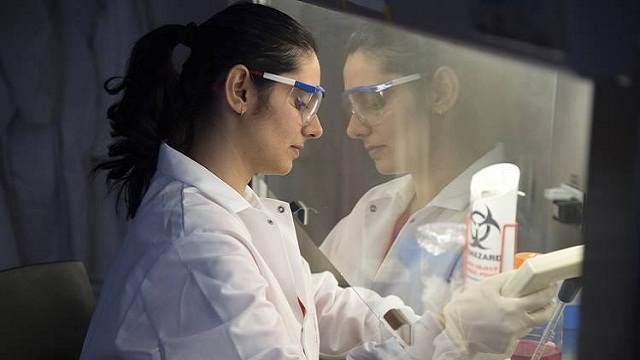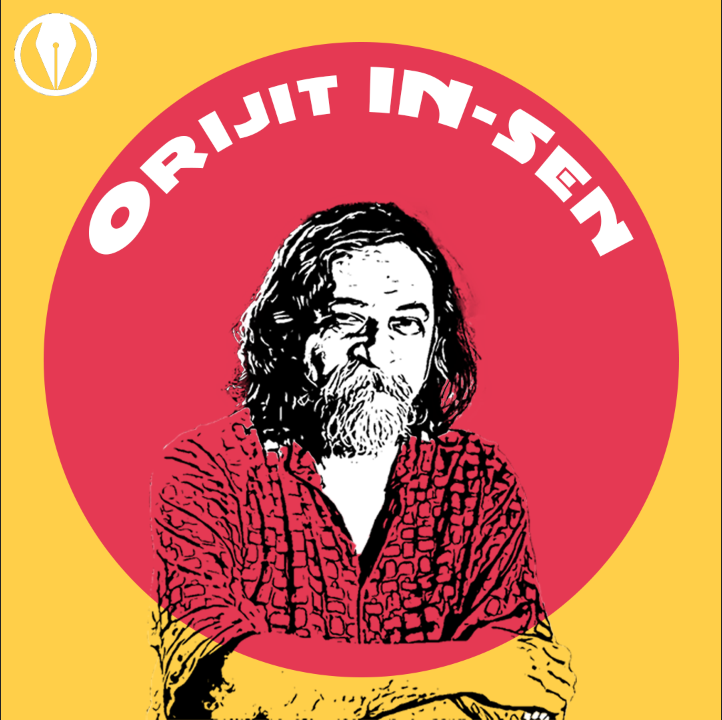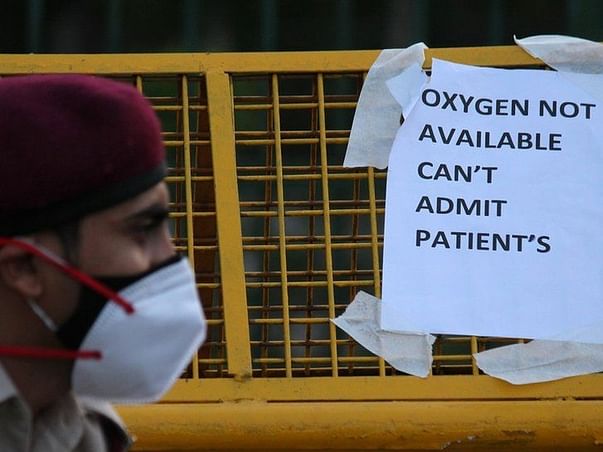Devika Sirohi recently won acclaim for her role in a team of seven scientists and researchers which successfully decoded the structure of the Zika virus. Incidentally, she was also the youngest member there. She graduated, having completed her course in Biochemistry (Hons.) from Delhi University, obtained her Master’s Degree from the Tata Institute of Fundamental Research and is now pursuing a Doctorate in the study of flaviviruses from Purdue University. She was invited to this year’s Techkriti and delivered a talk on the looming danger of viruses and how structural studies and cryo-electron microscopy are changing the research on infectious diseases. The following is an excerpt from the interview with
VP : As someone who has studied biological sciences in both India and abroad, in your opinion, do there exist differences in the approach and perception of the field?
DS : I get asked this question a lot! I studied in TIFR which was a top-notch institute, so I didn’t see a drastic difference, but there are certain cultural differences and there are differences in resources, so yes, there are definitely are differences.
VP : A common notion about education in India, especially at the undergraduate level, is that it is more academically rigorous and more inclined towards sound theoretical knowledge as compared to that abroad ?
DS : In the US, education is more centred on the practical aspects of the subject. The other thing I really like about the US system is that you keep having exams throughout the semester instead of having a comprehensive exam towards the end. So I think that this way you learn a lot more instead of studying everything towards the end, which also helps you grasp a lot more content. They have more opportunities to work in labs, even at the undergraduate level. In fact, undergrad students also work with us in our lab at Purdue. I think they start focussing on research far quicker, just because there are more opportunities and really, there are many more research labs. I think that’s the difference.
VP : Is biological science a hard field to base a career on?
DS : Biological science has a lot of research going on and that is the reason I think it attracts so many PhDs. Owing to the large number of students working in the field, it is very competitive. Maybe there are fewer exit options out so you go into academia or pharmaceuticals. Like in engineering, there are different ‘branch-outs’ so you can exit a little easier. But having said that, the career you are always feels the hardest, right?
VP : From an economic perspective, is biological science something you have to study very hard and very long before you can make a successful career?
DS: That is true, I’ll not deny that. Research is a very long career and you have to be persistent, make a lot of publications because the ‘good academic’ jobs are limited and you have to cut the crack, so it’s very very competitive. At least in the US, I think you survive in science only if you are extraordinary. It’s harder to survive if you are mediocre because the funding for research, most of which comes from the taxpayer’s money, and there is limited taxpayer money, goes to the best groups. But if you are good, sky is the limit, so it goes both ways.
VP : A lot of undergrad students really have no clue about what they want to do later in life. So, how was your the journey from BSc Biochemistry to specialized research on flaviviruses? When did revelation strike? Any interesting anecdotes?
DS : I don’t think I have had ever made up my mind that this is what I wanted to do and even now I question whether what I am doing is what I should be doing. I think this self-evaluation is important. If you feel for a long set of days prolonged period of time that what you are doing is not good enough then figure out a different strategy. But sometimes you need to evolve and fit wherever you have to go, so keep your mind open to opportunities and be exposed to different kinds of things. Unless you try new things you won’t know whether you are good. Everything looks good on paper but you have to go and actually do it. So, you have to keep your mind open to opportunities that come and not be pigeon-holed.
VP : Shifting focus back to your field of specialization and the talk you delivered, how susceptible is the world to sudden outbursts of pandemic disease and how did the Zika virus breakout happen why is it that all such breakouts originate from South-Central America, Africa and Southwest Asia?
DS : Very susceptible. We are fighting a dynamic, unheard-of enemy and sometimes we don’t know what we are up against. As for the virus breakout origins, that’s a really good question. Usually in Africa a lot of people are in contact with animals. So sometimes it happens that a lot of these ‘zoonotic’ viruses make a jump from animal to man. If you cohabitate with animals, some of them evolve somehow and then spread onto men. Wherever there is more contact like in China; influenza, H1N1 and other outbreaks happened as there were a lot of “live-markets”.
VP : You said in your talk mentioned earlier that this research on pathogens has to be done quickly else these diseases burn out. What does this ‘burn out’ mean?
DS : Burning out means that you have the virus has infected so many individuals that they have all developed immunity against it, so you carriers are not spreading the disease actively. Some diseases like Ebola burn out literally because they kill the people infected, before the disease could be transmitted. In other times if you have 60% or 70% immunity in the population then you do not have enough infected individuals to transmit the diseases. But then it comes up again after 20 years when you have lost the generation of people who have antibodies.
VP : Earlier in your talk, you stated that your laboratory believes in ‘bridging the gap between knowledge of the structure and functions’ . Isn’t it very counter-intuitive that even after you know the inside-out of what something is made of, you still don’t know how it works?
DS : When people decoded the genome, they thought that all the problems will be solved once they had the genome. Now we know the genome and we are not exactly better off, right? Structure does not have all the answers. We still do not know why things that look exactly the same do very different functions. In biology, there is no single answer for everything. You need to couple all kinds of techniques and look at problems from a multi-dimensional perspective.
VP : What are your thoughts on the future of infectious disease research and drug research?
DS : I think it looks very promising. It’s going to be hard to figure out which pathogens are going to be a priority. You start with Ebola, so what about the Ebola vaccine, how are you going to test it? What about when an epidemic goes on? How are you going to test the zika virus? Which are the next pathogens we are going to decide upon? Are we going for MERS or SARS, or which one are you going to make. I think that’s the hard part really, to figure out which area to work on But it is a very fertile area, because I think there will always be viruses. There will always be these threats so if you get good at it, there is a lot that can be done.
VP : Any specific field that you plan to pursue in the future?
DS : I think I am going to be associated with infectious diseases. I haven’t chosen what kind of virus I am going to work on, but I would like to go for something that is tractable so you have more technology to work on it and more ranges to work on. That’s my forte, I like viruses whether it’s in making vaccines or any aspect of it. I like fundamental knowledge also, but my best areas are sort of at the bridge between fundamental and application.
VP : Apart from your love for viruses, what hobbies do you pursue?
DS : Well I have given up really and I used to dance a lot and I’m not doing that and I feel I should have not done that. So once I finish my studies, I plan to go back to the gym regularly…I think it’s important to be active and whichever way one goes you should not be giving up on your hobbies. I think hobbies are important and staying with them is as important as anything else.
VP : How does Techkriti compare to the fests you’ve attended earlier? In the US, for example.
DS : They have conferences but I don’t think they have these kinds of talks. I think it’s very new and a nice initiative. I think compared to others it is all student organised and very high-level. Ph.D students would go to a conference for a day but I don’t think there would be a 3-4 day fest so this is very nice. Those are more restricted symposiums. This is sort of like everything… people from all walks of life… I think it is very inclusive…which is very good because people who are attending the festival get to see all spaces and get to know where they fit in best. I wish more people did that because sometimes people just don’t want to see what may work for them, you do not go and seek out the opportunity. You have to try and see what works for you, I think. You shouldn’t hesitate in trying, because you might find something which you like. I mean what’s the worst that can happen, right?
Interviewed and Written by Siraj Singh Sandhu and Sambhav Mattoo












